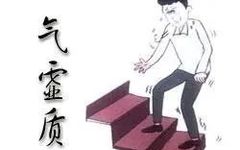Qi Deficiency – The Huangdi Neijing (Yellow Emperor’s Inner Canon) has long pointed out: “All diseases arise from Qi,” meaning that many diseases are related to the movement of Qi in the body. Therefore, to maintain health, it is essential to focus on Qi replenishment. Qi replenishment methods are suitable for those with Qi deficiency; if one does not have Qi deficiency, this method should not be used. Qi deficiency refers to insufficient Qi, leading to shortness of breath with slight exertion, frequent feelings of fatigue, low speech, poor appetite, a pale tongue with a white coating, teeth marks on the tongue, and a weak pulse.
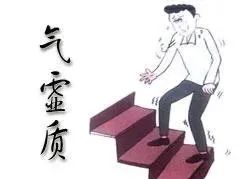
Due to the differences in Qi deficiency, such as Heart Qi deficiency, Lung Qi deficiency, Spleen Qi deficiency, and Kidney Qi deficiency, specific Qi replenishing herbs should be used accordingly.
1. How to Replenish Lung Qi:
The main manifestations of Lung Qi deficiency include low speech, weak breathing, susceptibility to colds, and even weak coughing.
Common herbs for replenishing Lung Qi include:
Huang Qi (Astragalus): An important Qi replenishing herb that not only replenishes Lung Qi but also benefits Qi throughout the body. Elderly individuals with Qi deficiency can benefit from regular consumption of this herb to enhance resistance, prevent disease, and promote longevity.
Huang Jing (Polygonatum): This herb nourishes and moistens the lungs, especially suitable for dry cough due to Lung deficiency.
Ling Zhi (Reishi Mushroom): This herb replenishes both Lung and Kidney Qi, suitable for cough, asthma, and fatigue caused by both Lung and Kidney deficiency. For example, Ling Zhi ginger candy can treat cough and asthma; when combined with Ren Shen (Ginseng), it can treat symptoms such as pale complexion, fatigue, shortness of breath, and weakness in the legs caused by various chronic diseases. Long-term use can prevent and treat coronary heart disease, chronic bronchitis, hyperlipidemia, and leukopenia caused by various reasons, thus promoting longevity.
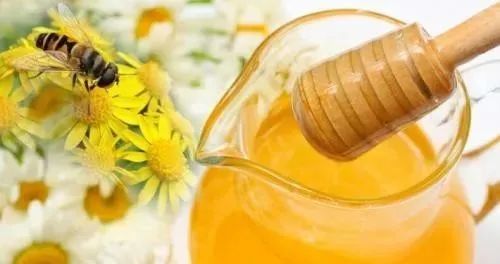
2. How to Replenish Spleen Qi:
Spleen Qi deficiency is primarily characterized by abdominal distension after eating, weakness in the limbs, undigested food in stools, and sometimes prolapse of the rectum or uterus, with a weak pulse.
Common herbs for replenishing Spleen Qi include:
Da Zao (Jujube): A great Qi replenishing food that nourishes the blood and strengthens the spleen and stomach.
Honey: Sweet and nutritious, long-term consumption of honey can nourish the heart muscle, protect the liver, lower blood pressure, and prevent vascular hardening, thus alleviating symptoms and enhancing physical strength.
Ren Shen (Ginseng): A key herb for Qi replenishment, it can be consumed steamed, boiled, or chewed. Modern studies have shown that Ginseng regulates the nervous, circulatory, endocrine systems, material metabolism, and immune function, making it effective for preventing and treating various diseases, especially beneficial for the elderly. The recommended dosage is 5-10g, but it should be avoided with strong tea and radishes.
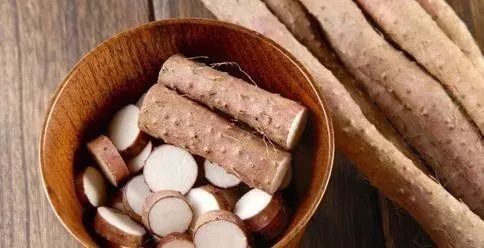
3. How to Replenish Kidney Qi:
Kidney Qi deficiency is prominently characterized by lower back pain, general fatigue, and cold hands and feet.
Common dietary methods for nourishment include:
Shan Yao (Chinese Yam): An inexpensive tonic, 10-30g of Shan Yao is beneficial for the elderly and weak individuals.
Li Zi (Chestnut): Beneficial for Qi, strengthens the stomach, and replenishes Kidney Qi. Elderly individuals with Kidney deficiency and fatigue can consume 2 raw chestnuts each morning and evening.
Hai Shen (Sea Cucumber): Known for its tonic effects similar to Ginseng, it is a high-protein, low-fat, and low-cholesterol food that benefits Kidney Qi, nourishes Kidney Yang, and stops bleeding and inflammation. It is not only a delicacy but also regarded as a nourishing food, effective for shortness of breath and fatigue in patients with hypertension, coronary heart disease, and hepatitis.
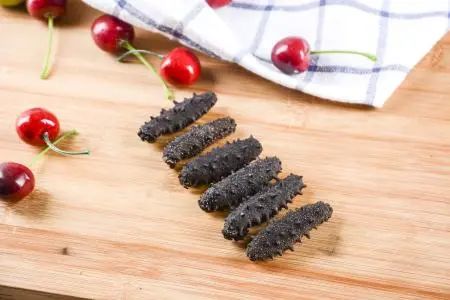
4. Qi Sinking:
This refers to Qi deficiency leading to sinking, primarily manifested as abdominal heaviness, gastric prolapse, rectal prolapse, and uterine prolapse. Qi sinking is closely related to the Spleen, as the Spleen resides in the middle jiao and governs the upward movement of Qi. When Spleen Qi is damaged, it cannot lift, leading to Qi sinking. This results in symptoms such as reduced appetite, abdominal distension, and diarrhea, as stated in the Suwen: Yin Yang Ying Xiang Da Lun: “When clear Qi is down, it leads to diarrhea.” Clear Yang Qi should be above, but when it is weak and cannot rise, it leads to sinking and excessive diarrhea.
Common herbs used to treat Qi sinking include:
Sheng Ma (Cimicifuga): This herb is cold in nature, sweet, spicy, and bitter, entering the Lung, Spleen, and Stomach meridians. It disperses wind-heat, promotes rashes, lifts, and detoxifies, suitable for sore throat, gastric fire, toothache, gastric prolapse, rectal prolapse, and mouth sores. It can also promote rashes and be used for measles or febrile diseases with rashes.
Jie Geng (Platycodon): This herb is neutral, bitter, and spicy, entering the Lung and Stomach meridians. It opens and disseminates Lung Qi, dispels phlegm, and has an ascending effect for carrying herbs upward. It is commonly used for upper respiratory diseases, sore throat, lung abscess with pus, and chest fullness and side pain. Additionally, Jie Geng can open the chest and clear phlegm obstruction in the lungs.
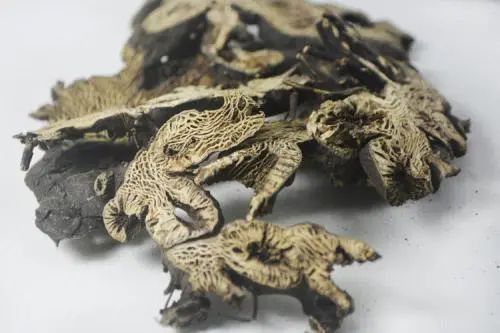
5. Qi Collapse:
This is a pathological change due to excessive sweating, diarrhea, significant blood loss, seminal fluid loss, and severe conditions such as stroke and syncope. The function of Qi relies on the normalcy of blood and body fluids. When blood or body fluids are lost in large quantities, it leads to “Qi following blood loss” and “Qi following fluid loss”. Qi is fundamental to life activities; when Qi deficiency approaches collapse, symptoms such as weak breath, dizziness, pale complexion, cold limbs, weak pulse, and even profuse sweating may occur.
Common herbs used to treat Qi collapse include:
Ren Shen (Ginseng): This herb is warm, sweet, and slightly bitter, entering the Spleen and Lung meridians. It greatly replenishes Yuan Qi, benefits the lungs and spleen, generates fluids, and calms the spirit. It nourishes the defensive Qi externally and regulates the nutritive blood internally, suitable for symptoms of Qi deficiency leading to collapse, fatigue, thirst, and insomnia.
Fu Zi (Aconite): This herb is very hot, very spicy, and toxic, entering the Heart, Spleen, and Kidney meridians. It revives Yang and rescues from collapse, suitable for cold limbs, weak pulse, and other critical conditions due to excessive sweating.
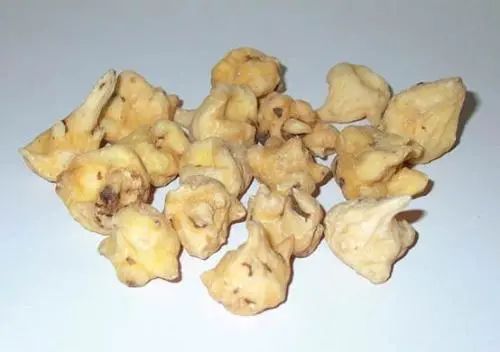
6. Qi Stagnation:
This is primarily caused by emotional distress such as worry, anger, and frustration, closely related to the Liver and Heart. Traditional Chinese Medicine believes that the Liver governs the smooth flow of Qi and is responsible for emotional regulation. If emotions such as worry and anger become excessive, it can lead to Liver Qi stagnation, resulting in symptoms such as fullness or pain in the chest and sides, and a wiry pulse. Prolonged Qi stagnation can affect blood circulation, leading to blood stasis, which manifests as stabbing pain in the chest and sides, with possible purple spots on the tongue. Particularly, prolonged Qi stagnation can transform into heat, leading to symptoms such as irritability, bitter taste in the mouth, dry throat, red eyes, tinnitus, constipation, red tongue, yellow coating, and rapid pulse.
Common herbs used to treat Qi stagnation include:
Mei Gui Hua (Rose): This herb is warm, sweet, and slightly bitter, entering the Liver and Spleen meridians. It smooths the Liver, regulates Qi, and harmonizes blood, suitable for chest tightness, pain in the stomach and sides, vomiting blood, coughing blood, menstrual irregularities, and bruising.
Xiang Fu (Cyperus): This herb is neutral, spicy, and sweet, and is used to smooth the Liver, regulate Qi, and relieve pain, suitable for disharmony between the Liver and Stomach, Qi stagnation, and pain in the chest, sides, and abdomen.
Xiang Yuan (Citron): This herb is warm, spicy, sour, and bitter, used to regulate Qi, open the chest, and transform phlegm, suitable for side pain, stomach pain, and cough with chest tightness due to Qi stagnation.
Chen Pi (Dried Tangerine Peel): This herb is warm, spicy, and bitter, entering the Spleen and Lung meridians. It regulates Qi, strengthens the Spleen, dries dampness, and transforms phlegm.
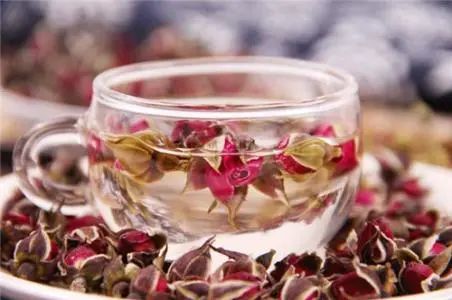
7. Qi Reversal:
This occurs due to abnormal rising and falling of Qi, where Qi does not descend or ascends excessively. Clinically, Lung, Stomach, and Liver Qi reversal are common. If Lung Qi reverses, symptoms include cough and shortness of breath; if Stomach Qi reverses, symptoms include hiccups, belching, nausea, vomiting, and regurgitation; if Liver Qi reverses, symptoms may include dizziness and even syncope.
Common herbs used to descend Qi include:
Ban Xia (Pinellia): This herb is neutral, spicy, entering the Spleen and Stomach meridians. It dries dampness, transforms phlegm, descends Qi, stops vomiting, and disperses lumps, suitable for phlegm-induced headaches, damp phlegm retention, vomiting, regurgitation, chest fullness, and phlegm nodules.
Hou Po (Magnolia Bark): This herb is warm, spicy, and bitter, entering the Spleen, Stomach, and Large Intestine meridians. It warms the middle, descends Qi, and dries dampness.
Xie Bai (Garlic Chives): This herb is warm, spicy, and bitter, entering the Heart, Liver, Lung, and Large Intestine meridians. It regulates Qi, opens the chest, and disperses lumps.
Lai Fu Zi (Radish Seed): This herb is neutral, spicy, and sweet, entering the Lung and Stomach meridians. It descends Qi, aids digestion, and stops cough and asthma.
Su Zi (Perilla Seed): This herb is warm, spicy, entering the Lung and Large Intestine meridians. It descends Qi, transforms phlegm, stops cough, and relieves asthma.
Ding Xiang (Clove): This herb is warm, spicy, entering the Lung, Stomach, Spleen, and Kidney meridians. It is aromatic, spicy, and disperses warmth, warming the Spleen and Stomach, dispersing cold, descending Qi, and treating cold pain in the abdomen, hiccups, and vomiting. It also warms the Kidney to assist Yang, treating male Kidney deficiency, impotence, and female coldness and dampness.
Note: Some text and image resources in this article are sourced from the internet. The purpose of sharing this article is to convey more information. If there are any errors in source attribution or infringement of your legal rights, please notify us immediately, and we will delete it promptly and apologize.
Recommended Articles

